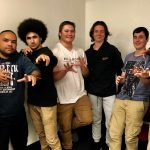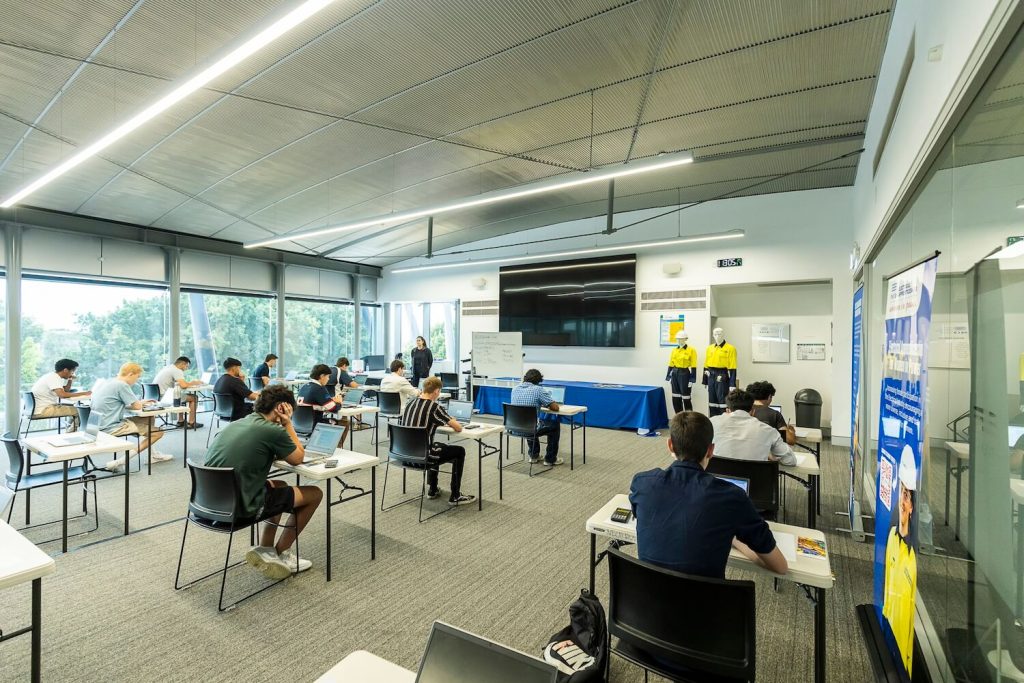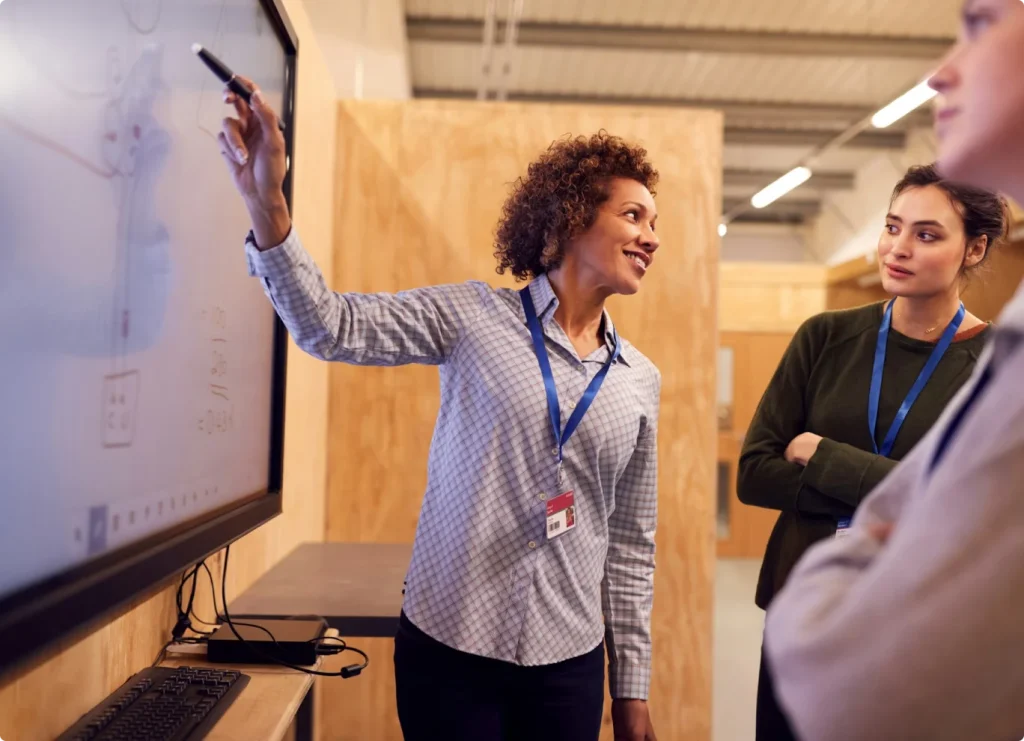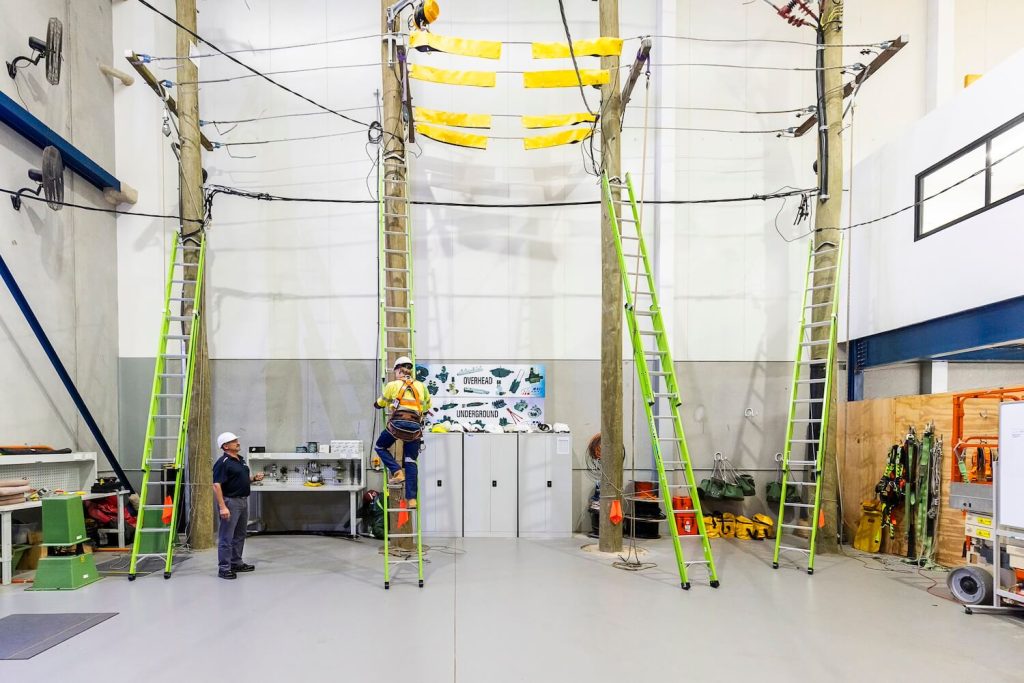NECA’s emPower Aboriginal Apprenticeship Readiness Program
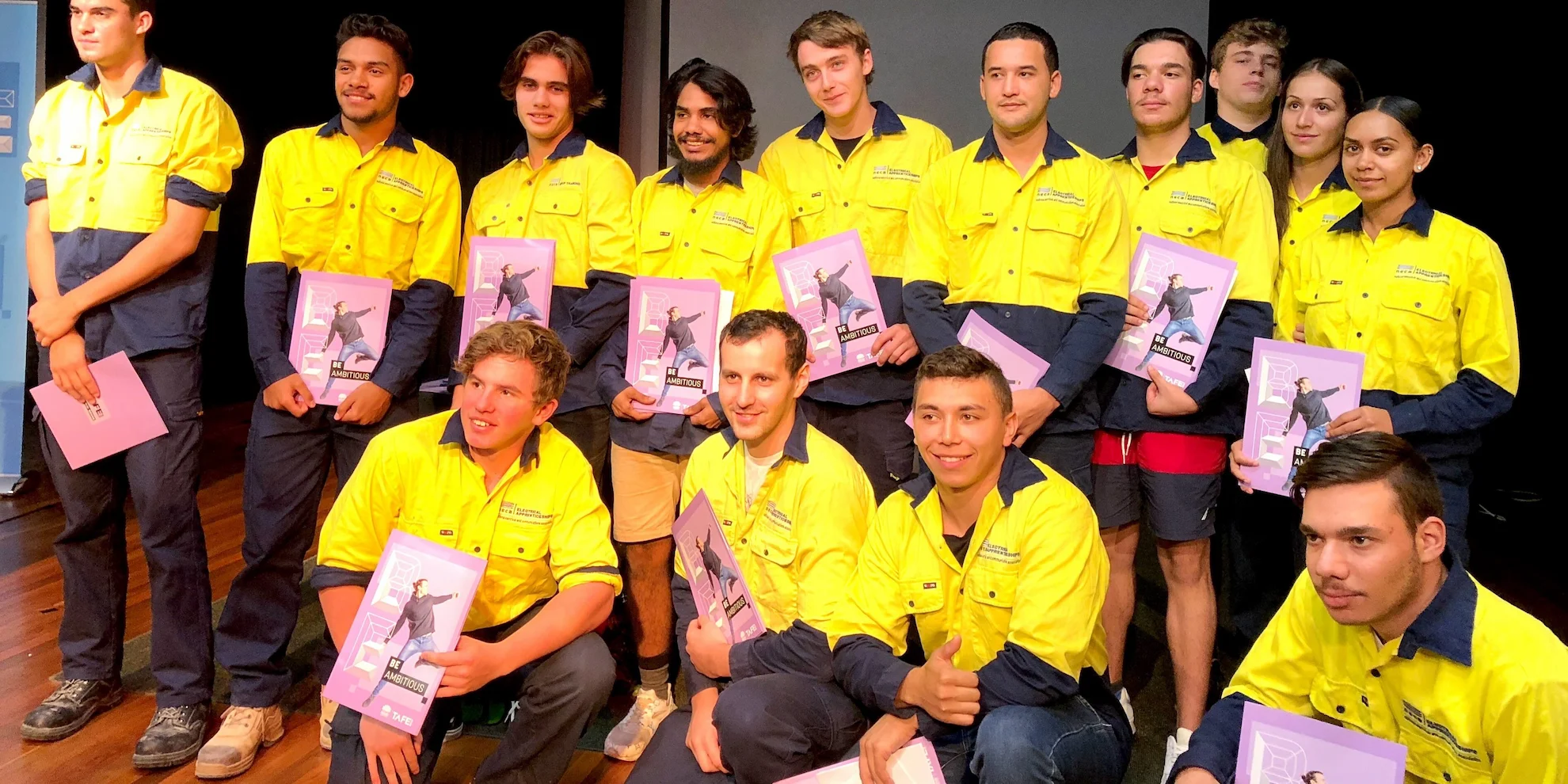
The National Electrical and Communication Association (NECA) Training & Apprenticeships has always been committed to developing and providing the right people to meet the industry’s skills needs. However, ‘providing’ doesn’t mean sitting back and waiting for them to come, it means going out and looking for the right people.
One such initiative is NECA’s emPower Aboriginal Apprenticeship Readiness Program which has provided over 250 Aboriginal and Torres Strait Islander Australians with life changing pathways to employment and further study since 2018. Over 80% of emPower graduates are in long-term employment or ongoing education, many of them as electrical apprentices with NECA.
“Diversity and inclusion in the electrotechnology trade is very important. As a training organisation we realised that we had a unique position to increase diversity by giving young Indigenous people additional support and training to secure an apprenticeship, which they may not have had. After starting in 2017, we’re extremely proud of the amount of people who have taken part and are still succeeding”, said Tom Emeleus, General Manager, NECA Training & Apprenticeships.
NECA Training & Apprenticeships has long recognised the importance of involving first nations people in the electrotechnology industry. To ensure indigenous inclusion in the industry, NECA, in partnership with TAFE NSW and Mulga Gidgee, an intercultural coaching, training, and mentoring organisation, created the emPower Aboriginal Apprenticeship Readiness Program. The program was supported with funding from the Commonwealth Department of Jobs and Small Business through the Empowering YOUth Initiative. Started in 2017, emPower is a pre-apprenticeship program designed to give Aboriginal and Torres Strait Islander students the numeracy, literacy, and employability required to successfully gain an electrical apprenticeship.
Tom continued “We partnered with Mulga Gidgee because of Scott’s success strengthening emotional resilience, intercultural competency and personal effectiveness, not just for Indigenous people but also for non-Indigenous. He is passionate and was a natural fit to mentor the young students, ensuring personal challenges were recognised and addressed, to minimise their impact on work life.”
Scott McCall, Managing Director, Mulga Gidgee, said “Partnering with NECA to help get young Indigenous people into apprenticeships has been fantastic, especially because there is the opportunity for real jobs at the end of the program. As documented in the Closing the Gap reports, addressing indigenous disadvantage has a range of benefits, and addressing them early in people’s lives has longer lasting effects. Programs like NECA’s emPower help to tackle major differences in life expectancy and health outcomes, education, employment opportunities and incarceration rates between Indigenous and Non-indigenous people.”
emPower also builds the self-confidence and cultural knowledge of the students and raises cultural awareness with existing industry workers to promote a more inclusive workplace, allowing program graduates to thrive as apprentices.
Tollie Donnelly, emPower program student and second year apprentice said, “The emPower program was a once in a lifetime opportunity. It opened doors and gave greater perspective on career paths available to me. Throughout the program NECA and Mulga Gidgee provided a lot of support especially in areas where my skills aren’t focussed. Now we’re in TAFE they continue to be hands-on to maintain our group which helps to keep our sense of community and culture.”
Many of the students have often come from highly disadvantaged backgrounds and have had limited previous opportunities. The program, which includes work experience and work-like attendance patterns, shows students they have the ability to achieve long, successful careers in the electrical industry.
“While on the program the students take on a Certificate 2, which helps to prepare for work covering maths, English, communications and some introductory Electrical and Work Safety units. After this they spend a week with a NECA host company prior to sitting a NECA entrance exam and interview. Should they be successful they will be offered apprenticeship placements with NECA host members”, said Tom.
Scott added, “With NECA and TAFE NSW we work to transition the young students from student to full-time apprentice. This includes health and wellbeing, resilience, mindfulness, conflict resolution, workplace communication and money management education.”
Shane Button, emPower program student and second year apprentice said “I couldn’t speak more highly about the program, it is so well run and managed through extensive experience I couldn’t fault it in any way. I joined the program as a mature age student, leaving school in year seven I had minimal education experience, within ten weeks of hard work I was doing algebra and was apprenticeship ready. Through a lot of support and care I felt 100 per cent ready for interviews and knew I was absolutely ready to start my apprenticeship.
“It has been an opportunity which has completely changed my life and that of those around me. I’ve found through the course that the best way to help a community is to encourage education and employment to enable future self-sufficiency, which is what I can achieve through the program and my career.”
NECA employs successful program graduates as electrical apprentices, and places them in industry to gain the necessary experience. Many of NECA’s partner companies recognise the value of the program and a diverse workforce and have embraced the emPower program to achieve this.
Scott continued, “The program has been a success because of the passionate leadership team at NECA, Mulga Gidgee and TAFE NSW, with a teaching team who has been working together for over 15 years in the space. We also introduce students to past emPower graduates who are currently working in the industry, these relationships often become role models which is a powerful tool for success.”
Tollie added, “As a Torres Strait Islander woman I love being challenged, especially when showing people what I can do onsite. I’m not the traditional mould of an apprentice so when I show people what I’m capable of or tell people what I do for a career I get a huge sense of pride.
“I prove to people that women aren’t just lollipop people in construction. I want to get my license and eventually start my own business, using the skills I’ve developed and what I’ve learnt through the emPower program and my apprenticeship.”
NECA Training & Apprenticeships is one of the largest employers of electrical apprentices in Australia, with over 750 apprentices. Established in 1988 it continues to provide hundreds of apprentices with a vast range of opportunities to become the future workforce of the electrotechnology industry.
“The emPower program continues to be a central part of our offering to the industry. The industry is better off for the inclusion of the students who come through the program. While some have moved off to continue studying or have careers in banking, nursing hairdressing or other trades, we’re proud of the start we’ve given them through the emPower program.
“Our partners are extremely important, Scott McCall from Mulga Gidgee has done amazing things building the personal strength and life skills of many young people who have been doing it tough. His continued commitment to the students who attain an apprenticeship and to those who don’t is admirable. TAFE NSW is also great partner in providing the care and education to make young Indigenous students apprenticeship ready.
“Continuing this program is an important part of our training program and we encourage members to be a part of future program placements”, said Tom Emeleus, General Manager, NECA Training & Apprenticeships.
Shane added, “It’s hard to comprehend the gravity of how much the emPower program is changing the lives of the students and their communities. I am so grateful to the program and the people involved for putting my life on the right path. Like me there would be many others who would remain lost without the opportunity to take part.
“Whether you like it or not you are a role model for others, it’s up to you whether you’re a positive or a negative role model. My goal is to use my apprenticeship and future career as a way to help my community by employing young Aboriginals and showing young people growing up there are great career opportunities out there. My young nephew has already said he wants to become an electrician because he’s seeing what I’m doing.”
